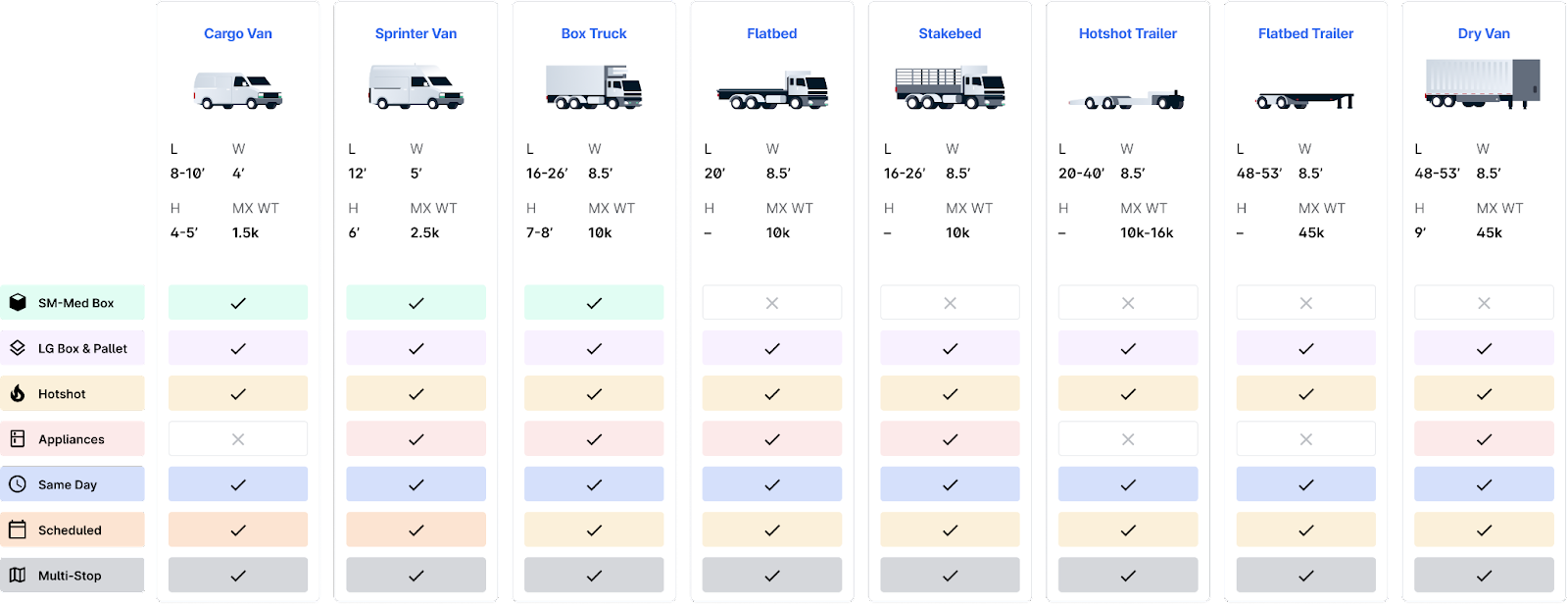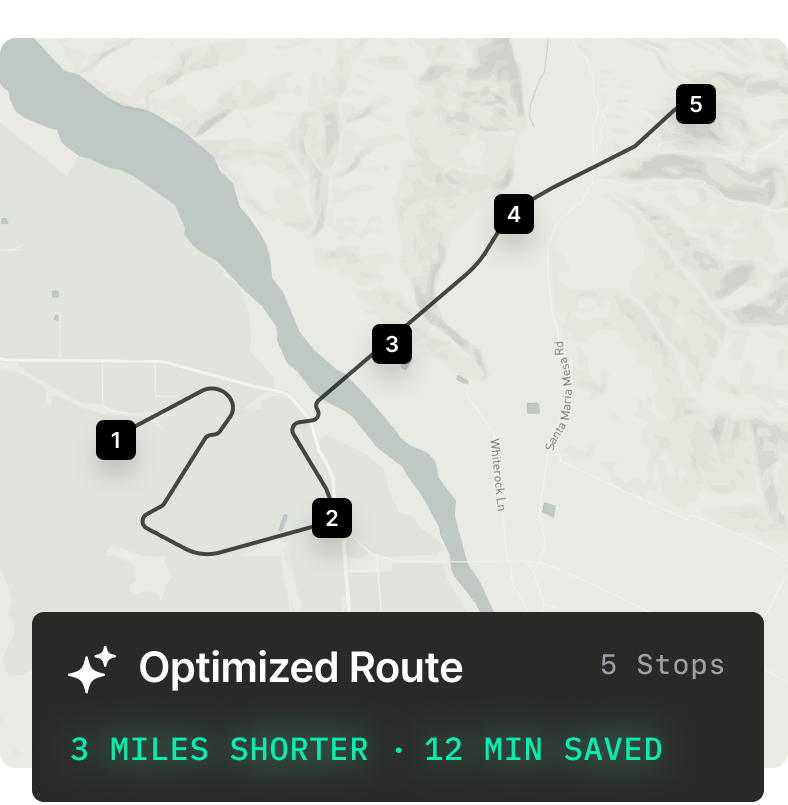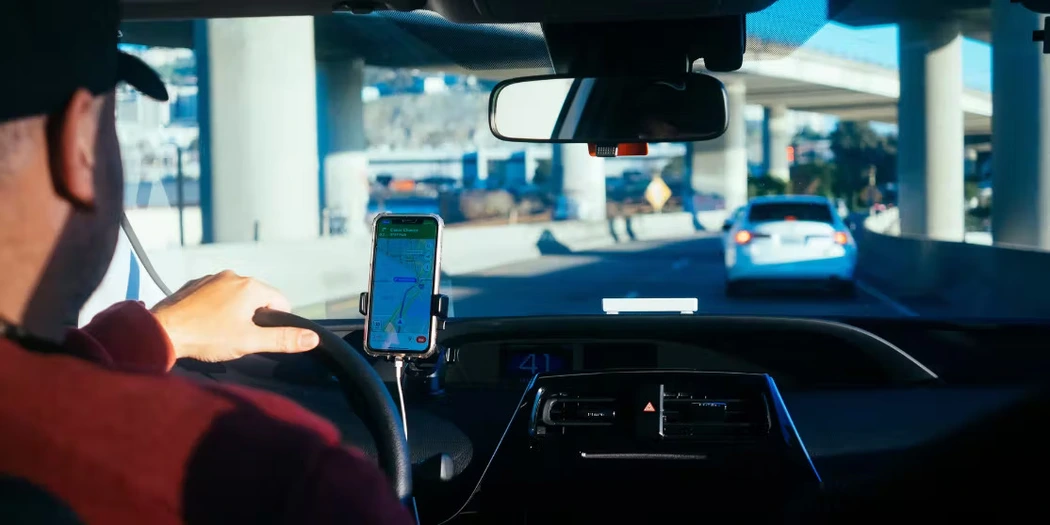Solar Panel Delivery Guide: Shipping Solar Panels Got Easier
August 1, 2024

Solar panel delivery isn't like dropping off a regular package. Solar panels are delicate, expensive, and a bit tricky to handle. If you're a distributor, manufacturer, or contractor, you need to know how to transport solar panels safely. This guide will help you understand the best practices and options for solar panel delivery. We’ll help you get material from point A to point B without issue.
What Is Solar Panel Delivery?
Solar panel transportation, or solar freight, involves moving solar panels from manufacturers to distributors, contractors, and finally to installation sites.
Unlike regular deliveries, solar panel transportation needs extra care. These panels are fragile, heavy, and expensive. They can break or get damaged if not handled properly.
Regular deliveries often involve sturdy items that can withstand some rough handling. But solar panels are different. They need special packaging, careful loading, and gentle unloading.
If something goes wrong, the panels can crack, leading to costly replacements and delays in installation. Proper transportation ensures that the panels arrive intact and ready for use.
Delivering solar panels involves several stages. Each stage has its own challenges and best practices. Let's discuss each step of the journey.
First Mile Solar Panel Delivery: Manufacturing to Distribution Center
The journey starts at the manufacturing plant. Solar panels are carefully packed to prevent damage. They’re loaded onto trucks with special racks to keep them secure. It sets the tone for the rest of the delivery process.
Manufacturers work with specialized logistics companies to ensure safe transport. These companies use vehicles designed to carry fragile items. Proper handling at this stage prevents early damage and ensures the panels are ready for the next step.
Middle Mile Solar Transportation: Regional Couriers
Next, the panels move from the distribution center to regional hubs. At this stage, known as the middle mile, regional couriers come in. These couriers are familiar with local routes and can navigate them efficiently.
Regional couriers use smaller trucks for quicker, more flexible delivery. They also ensure that the panels are handled with care during loading and unloading. This step is critical to keeping the supply chain moving smoothly and avoiding any delays.
Last Mile Solar Shipping: Local Job Site Delivery
The final leg of the journey is the last-mile delivery. This involves transporting the panels from the regional hub to the local job site. Final mile solar delivery is often the most challenging due to narrow streets and specific delivery windows.
Local couriers use smaller vehicles to handle last-mile deliveries. They coordinate closely with contractors to ensure timely delivery. Proper handling during this stage is crucial to ensure that the panels arrive in perfect condition and are ready for installation.
Curri specializes in moving solar panels and their accompanying modules, railing, wiring, and hardware. Our nationwide on-demand fleet takes pride in transporting equipment, no matter its size or delicate nature. Our network of drivers will handle it with care.

Curri can help you deliver solar PV (photovoltaics) equipment from point A to B and enable you to keep your promises and have peace of mind.
Thank you for reading this article. Please enjoy $40 off any Curri delivery by clicking on this link to sign-up.
Why Is Safe Transportation Important for Solar Panels?
Here are some key reasons why safe transportation is crucial for solar panels:
Reducing Financial Losses
Almost 5% of panel damages happen during shipping. Damaged panels mean extra costs for replacements and project delays. Ensuring safe transport cuts down on these financial risks and keeps projects on track.
For those solar installers who are counting on having solar equipment shipped and delivered to them, the lack of reliability is particularly disappointing. If they do not receive the equipment to install, jobs may be delayed and even lost.
Ensuring Customer Satisfaction
Customers waiting for their solar panels can be disappointed by damaged products. Even a small scratch can turn them off. Delivering panels in perfect condition keeps customers happy and builds trust in your service.
Compliance with Warranty Conditions
Solar panels come with warranties that often require safe transport. Damaged panels during delivery can void these warranties. Proper handling during transport ensures compliance and gives customers peace of mind.
Minimizing Environmental Impact
Broken solar panels can be a disposal issue. Some governments classify them as hazardous waste because they contain small amounts of heavy metals. Safe transportation reduces the risk of panels shattering and minimizes their environmental impact.
Protecting Brand Reputation
Your brand’s reputation is on the line with every delivery. Delivering undamaged panels shows reliability and professionalism. Protecting your brand’s reputation through safe transport practices can lead to more business and positive word-of-mouth referrals.
Types of Solar Equipment for Which Transportation is Required
Solar panels are just one part of the entire solar energy system. Various other components are essential for a functioning setup, and each requires careful transportation.
Here's a list of the key items and why secure handling is crucial for each:
- PV Modules: These are the heart of any solar system. They capture sunlight and convert it into electricity. Any damage to these modules can significantly reduce their efficiency.
- Inverters: They convert the direct current (DC) produced by solar panels into alternating current (AC) used by most household appliances. Inverters are sensitive and can be easily damaged by shocks.
- Racking Systems: These are the structures that hold the solar panels in place. They need to be transported without bends or breaks to ensure they can securely support the panels.
- Wiring and Cables: Essential for connecting the solar panels to the inverter and the electrical grid. Damaged wiring can lead to electrical faults and safety hazards.
- Battery Storage Systems: These store excess energy generated by solar panels for later use. They are heavy and delicate, requiring careful handling to avoid damage.
- Monitoring Systems: These devices track the performance of the solar system. Accurate data collection depends on these systems being in perfect working order upon arrival.
How to Prepare for Shipping Solar Panels
Proper preparation is key for freight shipping solar panels safely. Here’s a checklist to ensure everything goes smoothly:
- Inspect Packaging: Make sure panels are securely packaged in protective materials.
- Use Quality Containers: Opt for sturdy, shock-absorbent containers to prevent damage.
- Label Packages Clearly: Mark packages with “Fragile” and “Handle with Care” stickers.
- Check Vehicle Condition: Ensure the transport vehicle is in good working order and clean.
- Secure Panels Properly: Use straps and padding to keep panels from shifting during transport.
- Verify Delivery Details: Double-check the delivery address, contact information, and timing.
- Prepare for Weather: Be ready for weather conditions that could affect the panels or the route.
Delivery Methods for Solar Panels
There are two main methods for delivering solar panels: LTL and FTL. Each has its own benefits and considerations.
LTL Solar Panel Delivery
LTL, or Less Than Truckload, delivery means sharing truck space with other shipments. It's cost-effective for smaller loads since you split the cost with others. But, because the truck makes multiple stops, it can take longer.
For solar panel delivery, Curri offers same-day LTL panel delivery. We deliver materials right to a construction site without delays. This maximizes productivity and keeps projects on schedule.
FTL Solar Panel Delivery
FTL, or Full Truckload, delivery means your shipment gets the whole truck. When freight shipping solar panels in bulk this makes sense. The truck goes straight to the destination, so there are fewer stops and less risk of damage.
For solar panel delivery, Curri offers flexible options like same-day, expedited, regional, and long-haul deliveries. FTL ensures your shipment is handled exclusively, reducing risks and delays. Perfect for when timely delivery is key.
Challenges in Transporting Solar Panels
Fragility of Solar Panels
Solar panels are very fragile, often just a few millimeters thick. Handling and loading/unloading them requires great care. Specialized packaging is a must to prevent damage during transport. It includes:
- Using padded container
- Shock-absorbent materials
- Secure strapping
When handling, it's important to use soft gloves to avoid scratches. Panels should be lifted carefully and never stacked without protection. For loading and unloading, using padded equipment and securing the panels properly can prevent jostling and impact.
Curri helps by backing up our quality driver network with up to $250,000 of coverage for every load you send with us. All drivers must undergo our vetting process, including DOT-regulated carriers.
Size and Weight
Solar panels are about 5.5 to 6 feet long and 3 feet wide, weighing around 40 to 50 pounds each. Not all delivery partners are ideal for handling these dimensions and weight. Limited transportation options can complicate the delivery process.
Curri provides a range of delivery options to fit various needs. From cargo vans to flatbed trailers, Curri helps solar suppliers, distributors, manufacturers, and contractors find the right vehicle for safe and efficient transport. Our diverse fleet ensures that no matter the size or weight, we have the right solution.

Climate and Weather Conditions
Climate and weather conditions can pose significant challenges for transporting solar panels. Extreme temperatures, rain, snow, and high winds can all affect the safety and timing of deliveries. Panels need protection from moisture, which can damage their electronic components.
Curri helps by providing experienced drivers who understand how to handle these challenges. Our vehicles are equipped to deal with different weather conditions.
Thank you for reading this article. Please enjoy $40 off any Curri delivery by clicking on this link to sign-up.
Best Practices for Safe Solar Panel Delivery
Delivering solar panels safely involves careful planning and best practices. Here's how to ensure a smooth delivery:
Optimize Delivery Routes
Planning routes upfront helps avoid delays and ensures timely deliveries. Curri provides real-time carrier tracking for all deliveries, which enhances transparency and efficiency.
Curri's efficient route planning and communication streamline operations, cut costs, and boost customer satisfaction. With real-time tracking, distributors, contractors, and customers gain visibility into the delivery process. This transparency ensures everyone is informed and reduces the chances of miscommunication or delays.

Use Proper Packaging Materials
When learning how to transport solar panels, proper packaging is essential. Here’s the packaging you might need for shipping solar equipment:
- Foam Corners and Edges: Protects the corners and edges of the panels from impacts.
- Bubble Wrap: Cushions the panels and absorbs shocks during transit.
- Cardboard Boxes: Strong, durable boxes that fit the panels snugly, preventing movement.
- Pallets: Panels should be securely strapped to pallets to keep them stable.
- Plastic Sheeting: Provides an extra layer of protection against moisture and dust.
- Strapping and Ties: Keeps the panels and packaging secure and prevents shifting.
Vertical Stacking vs Horizontal Stacking
How you stack solar panels can make a big difference in their safety during transport. There are two main methods: vertical stacking and horizontal stacking.
- Vertical Stacking: This method involves standing the panels on their edges. It can save space and reduce the number of panels that touch each other. But it requires careful handling and secure strapping to prevent the panels from tipping over.
- Horizontal Stacking: This method involves laying the panels flat on top of each other. It’s more stable and easier to manage. However, you need to use padding between each panel to avoid scratches and damage from pressure points.
Both methods have their pros and cons. Vertical stacking can save space but needs more care. Horizontal stacking is safer but takes up more room. Choosing the right method depends on the specifics of your delivery and the handling equipment available.
Use Specialized Delivery Services
Not all delivery services are ideal for transporting solar panels safely, especially during the final mile solar delivery phase. Solar panel delivery services offer the right equipment and trained staff to handle fragile items. They know how to pack, stack, and transport panels without causing damage.
Curri offers specialized delivery services tailored for shipping solar panels. With our experienced drivers and real-time tracking, you can trust that your panels will arrive safely and on time.
Conduct Post-Delivery Inspections
Once your solar panels arrive, look for any signs of damage like cracks, scratches, or dents. Check the packaging for any signs of mishandling. Doing this right away helps catch issues early, so you can address them before installation. It also ensures that any warranty claims can be made promptly.
How Curri Handles Solar Panels Shipping
Curri has professional local drivers and a full virtual fleet to make on-demand deliveries of your materials and supplies.
Trained and Insured Local Drivers
When it comes to delivering solar panels, Curri goes the extra mile. Our local drivers are specially trained to handle these delicate items. We understand the value and fragility of solar panels, so we treat every delivery with the utmost care.

Plus, our Loss Assurance Program gives you peace of mind. Each delivery is covered up to $25,000, and for shipments valued over that, we have $250,000 cargo insurance in place.
Industrial-Grade Hotshot Delivery for Urgent Orders
Curri's industrial-grade hotshot delivery service is perfect for shipping solar panel orders that are urgent. This on-demand, direct shipping method bypasses warehouses and distribution centers, delivering straight to the destination.
It's ideal for time-sensitive deliveries, ensuring your panels arrive quickly and in perfect condition. With less handling involved, there's a lower risk of damage. This means your solar equipment gets to installers faster, ready for immediate use.
Optimized Routes and Logistics for Efficiency
Efficient logistics and optimized routes are key for solar panel deliveries. Curri’s route planner makes sure deliveries are quick and cost-effective. We save time and reduce costs by planning the best routes. And we monitor fleet performance with real-time metrics, historical data, and insights.
This keeps things running smoothly. So your solar panels arrive faster and in perfect condition, keeping your projects on track and your customers happy.

Fleet Equipment and Tools
Curri enhances solar panel delivery operations with our top-notch logistics platform and fleet elasticity. With access to our nationwide network of over 2 million carriers, you can easily manage demand spikes or fleet issues.
Using Curri has helped customers save over 30% on operating costs like fleet insurance and maintenance. Plus, it boosts your delivery experience, leading to a 25% increase in customer retention. With Curri, your solar panel deliveries are smoother, cheaper, and more reliable.
Large Vehicle Selection for Varied Delivery Needs

Curri has a wide range of vehicles to meet your delivery needs, including those suited for LTL panel delivery. Need a fully enclosed dry van for protection? We have it. Got oversized loads? Use our hotshot trailers. Heavy and oversized deliveries? Our flatbeds can handle them. Our fleet ensures we can manage any type of solar panel delivery efficiently.
Whether for a one-way hotshot or a regular route, we can deliver solar energy systems and other construction equipment from point A to point B. From manufacturer to doorstep, we've got your delivery needs covered.
Thank you for reading this article. Please enjoy $40 off any Curri delivery by clicking on this link to sign-up.
FAQs About Solar Panel Delivery
What is the packaging material for solar panels?
Solar panels are typically packed with foam corners and edges, bubble wrap, cardboard boxes, pallets, plastic sheeting, and secure strapping to prevent damage during transport.
What are the safety considerations for transporting solar panels?
Safety considerations include using proper packaging materials, careful handling and loading/unloading, protecting against weather conditions, and choosing the right delivery vehicle to minimize damage risks.
What are the cost factors to consider in solar panel delivery?
Cost factors include packaging materials, insurance, vehicle type, delivery distance, and any special handling requirements. Efficient route planning and reliable delivery services can also impact overall costs.

-min.jpeg)

















-min%20(1).jpg)

.webp)
.webp)
.webp)

-min.webp)



.webp)



.webp)






-min.webp)
.webp)




.webp)


.webp)



.webp)

.webp)
.webp)
.webp)
-min.webp)


-min.jpg)



-min.webp)









